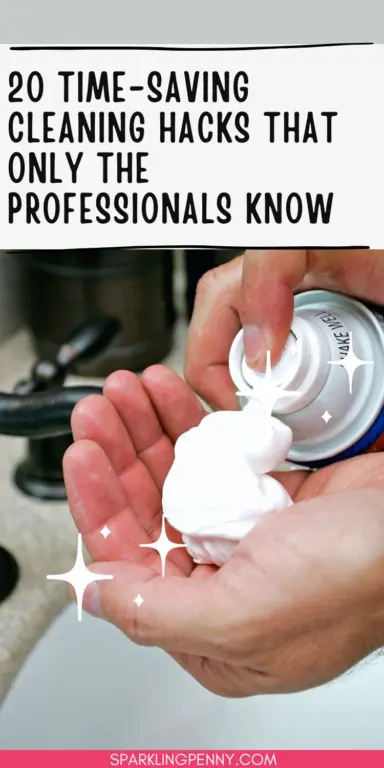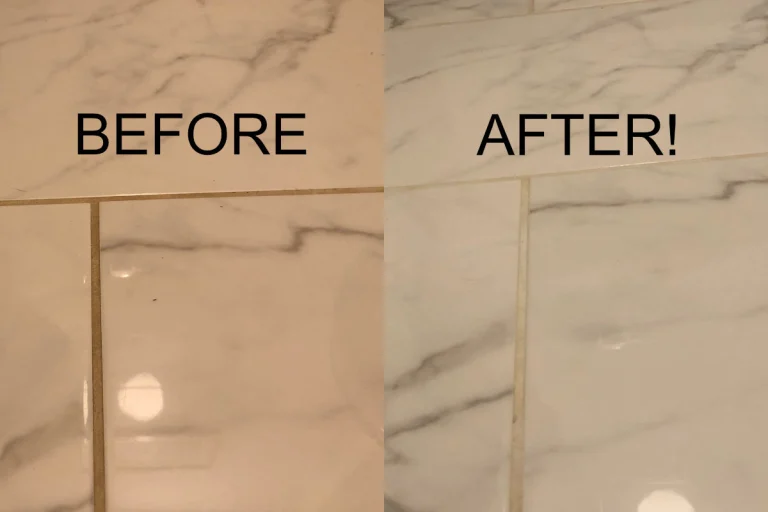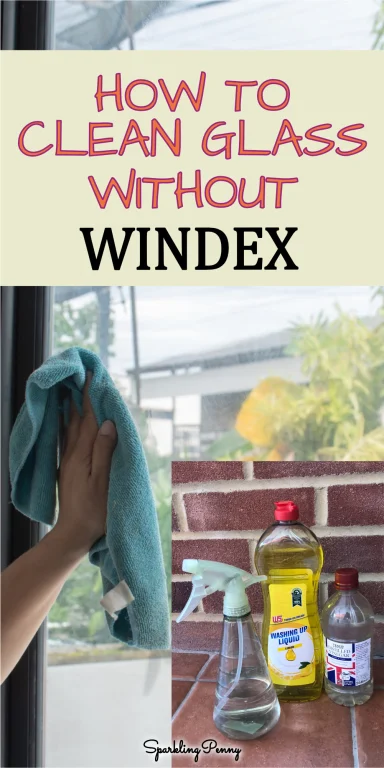Your trusty dishwasher is a must-have in the kitchen.
But even the best appliances can get dirty and start to stink over time.
Some people resort to using bleach to clean their dishwashers, but did you know that this can actually be harmful and cause damage? Especially if you have a stainless-steel dishwasher.
In this article, I’ll share how to clean your dishwasher safely with bleach, plus provide some non-toxic alternatives and tips for keeping your machine running like new.
Here’s the short answer:
To clean a dishwasher with bleach, mix one quart of water with a teaspoon of bleach in a spray bottle. Apply the solution to the interior of the dishwasher and scrub where needed with a cloth. Then run a hot water cycle to rinse away the bleach.
Read on for more details.
Heads up: I sometimes use affiliate links. When you click these links and make a purchase, I may get a small commission. It won't cost you anything but it helps me to run this site.
Why use bleach to clean a dishwasher?
Bleach is a powerful cleaning solution that can be great for getting rid of tough stains, killing bacteria, and making unpleasant odors disappear.
It’s especially good at removing stubborn mold and mildew stains that other cleaning solutions might not be able to tackle.
When used properly and in the right amount, bleach can be a safe and effective cleaning solution for plastic dishwashers. But, it’s important to remember that it’s not safe for use on dishwashers with a stainless-steel interior, as it can damage the finish and internal parts.
If you have mildew present in your stainless-steel dishwasher, check out this post on how to remove mildew from your dishwasher with vinegar.
There are other non-toxic cleaning solutions that can work just as well without the potential risks of bleach, such as vinegar, baking soda, and citric acid.
Can you clean a stainless-steel dishwasher with bleach?
While bleach is a powerful cleaning solution that can kill bacteria and remove tough stains, it is not a good choice for cleaning a stainless-steel dishwasher.
Stainless steel is more delicate than plastic, and bleach can damage the finish, leaving behind unsightly marks and even rust.
Additionally, bleach can corrode the rubber seals around the dishwasher door, causing leaks and other damage.
There are other effective and safe cleaning solutions that can be used instead, such as vinegar, baking soda, and citric acid.
How to clean a dishwasher safely with bleach

Although bleach is not recommended for use in a stainless-steel dishwasher, it can be an effective cleaning solution for plastic dishwashers, as long as it is used properly.
Here’s how to clean your plastic dishwasher with bleach:
Things you will need
- One teaspoon bleach
- One quart warm water
- Spray bottle
- Rubber gloves
- Microfiber cloth
Method
- Check ventilation. Open the windows or turn on the kitchen extractor fan to ensure there is sufficient ventilation.
- Remove food debris. Remove any large food deposits.
- Remove racks and filters. Remove the racks, cutlery basket and spray arms, and bottom filter.
- Make the cleaning solution. Add 1 quart of warm water to a spray bottle and add a teaspoon of bleach.
- Spray the inside. Spray the bleach solution inside the dishwasher, paying special attention to areas with heavy buildup or stains. Be sure to avoid getting bleach on any rubber seals or gaskets.
- Use a cloth to remove stubborn stains. Wipe the inside with a microfiber cloth.
- Clean the spray arm. Push a pin into the little holes on the spray arms to make sure they are clear.
- Wash the filter. Wash the filter in warm soapy water.
- Replace filter and racks. Replace the filter, racks and spray arms
- Run a cycle. Run a hot water cycle to rinse the bleach solution out of the dishwasher.
Once the cycle is complete, inspect the dishwasher for any remaining stains or buildup. If necessary, repeat the process.
Bleach should never be used with other cleaning products, such as vinegar or ammonia, as this can create toxic fumes.
What to use instead of bleach to clean your dishwasher

While bleach can be an effective cleaning solution for plastic dishwashers, it is not recommended for use in stainless-steel dishwashers and can be harmful if used improperly.
Fortunately, there are a variety of non-toxic cleaning solutions that can be used instead to keep your dishwasher clean and fresh.
Here are the best options:
- Vinegar. Vinegar is a versatile and safe cleaning solution that can effectively remove stains, buildup, and odors from your dishwasher. Simply place a cup of vinegar on the top rack and run an empty cycle.
- Baking Soda. Baking soda is another non-toxic solution that can help keep your dishwasher clean and odor-free. Sprinkle baking soda on the bottom of the dishwasher and run a hot water cycle to clean and deodorize the interior.
- Citric Acid. Citric acid is a natural cleaning solution that can be used to remove tough stains and buildup from your dishwasher. Add some citric acid to the soap dispenser and run a hot wash.
- Lemon Kool-Aid. Believe it or not, but lemon Kool-Aid can also be used as a non-toxic cleaning solution for your dishwasher! The citric acid in the Kool-Aid helps to break down buildup and stains, leaving your dishwasher clean and smelling fresh. Simply pour one packet of lemon Kool-Aid into the detergent dispenser and run a hot water cycle. The Kool-Aid will work its magic, and you’ll be left with a sparkling clean dishwasher.
- Tang. Tang, the orange-flavored drink mix, can also be used as a non-toxic solution to clean your dishwasher. The citric acid in Tang can help remove stains, buildup, and odors from your dishwasher. Simply pour a packet of Tang into the detergent dispenser and run a hot water cycle. The Tang will help break down any buildup or residue in your dishwasher, leaving it clean and fresh.
Is it OK to put bleach in the dishwasher with dishes?
While bleach can be an effective cleaning solution for your dishwasher, it is not recommended for use when washing dishes.
Bleach can be harmful if ingested or if it comes into contact with skin, and it can also damage the dishwasher’s internal parts if not used properly.
If you are concerned about bacteria on your dishes, add a cup of distilled white vinegar on the top rack. Vinegar is naturally antibacterial.

Frequently asked questions

How often should I clean my dishwasher?
It is recommended to clean your dishwasher once a month to keep it functioning properly and to prevent the buildup of bacteria and other contaminants.
However, if you notice any odors or buildup in between cleanings, it may be necessary to clean it more frequently.
Can I use bleach to clean the dishwasher if I have a septic system?
While bleach can be used to clean dishwashers, it is not recommended for use if you have a septic system.
Bleach can kill the beneficial bacteria in your septic tank, which can lead to issues with the system.
It is best to use non-toxic cleaning solutions if you have a septic tank.
Is it safe to use vinegar to clean a dishwasher?
Yes, vinegar is a safe and effective cleaning solution for dishwashers.
Vinegar can help remove stains and buildup, neutralize odors, and leave your dishwasher clean and fresh.
Simply fill a cup with distilled white vinegar and put it on the top rack, then run a hot cycle.
Can I use baking soda to clean my dishwasher?
Yes, baking soda is a safe and effective cleaning solution for dishwashers.
It can help remove stains and buildup, neutralize odors, and leave your dishwasher clean and fresh.
Simply sprinkle baking soda on the interior of the dishwasher and run a hot water cycle to clean it.
How can I prevent my dishwasher from developing odors?
To prevent odors from developing in your dishwasher, it is important to keep it clean and dry.
Run a hot water cycle with some vinegar once a month to help prevent buildup of grease and grime.
Here’s more on how to clean your dishwasher.
You can also leave the dishwasher door open after running a cycle to allow it to air out and dry completely.










